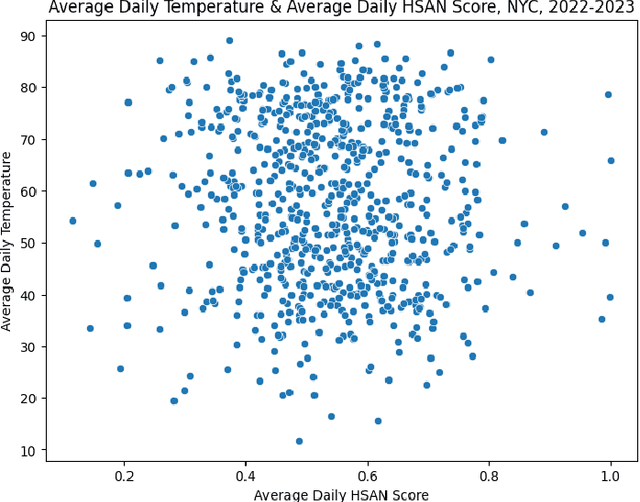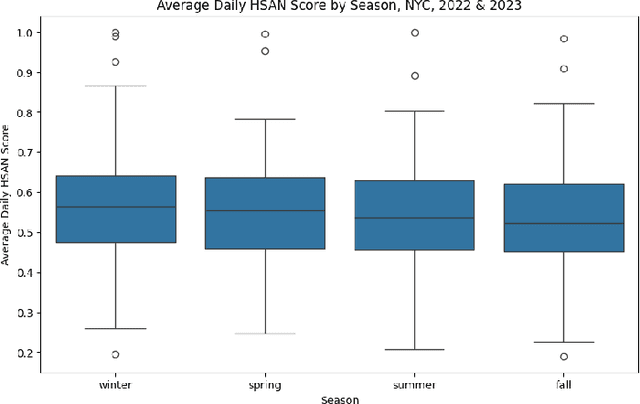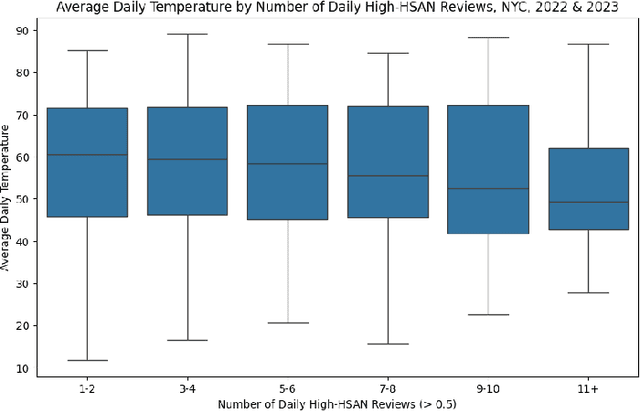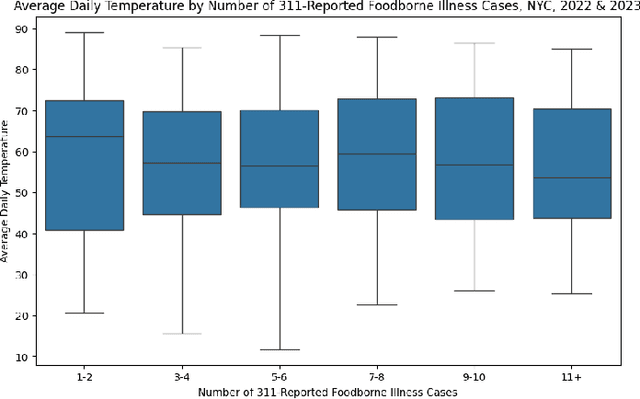Eden Shaveet
Seasonality Patterns in 311-Reported Foodborne Illness Cases and Machine Learning-Identified Indications of Foodborne Illnesses from Yelp Reviews, New York City, 2022-2023
May 09, 2024



Abstract:Restaurants are critical venues at which to investigate foodborne illness outbreaks due to shared sourcing, preparation, and distribution of foods. Formal channels to report illness after food consumption, such as 311, New York City's non-emergency municipal service platform, are underutilized. Given this, online social media platforms serve as abundant sources of user-generated content that provide critical insights into the needs of individuals and populations. We extracted restaurant reviews and metadata from Yelp to identify potential outbreaks of foodborne illness in connection with consuming food from restaurants. Because the prevalence of foodborne illnesses may increase in warmer months as higher temperatures breed more favorable conditions for bacterial growth, we aimed to identify seasonal patterns in foodborne illness reports from 311 and identify seasonal patterns of foodborne illness from Yelp reviews for New York City restaurants using a Hierarchical Sigmoid Attention Network (HSAN). We found no evidence of significant bivariate associations between any variables of interest. Given the inherent limitations of relying solely on user-generated data for public health insights, it is imperative to complement these sources with other data streams and insights from subject matter experts. Future investigations should involve conducting these analyses at more granular spatial and temporal scales to explore the presence of such differences or associations.
memorAIs: an Optical Character Recognition and Rule-Based Medication Intake Reminder-Generating Solution
Dec 11, 2023Abstract:Memory-based medication non-adherence is an unsolved problem that is responsible for considerable disease burden in the United States. Digital medication intake reminder solutions with minimal onboarding requirements that are usable at the point of medication acquisition may help to alleviate this problem by offering a low barrier way to help people remember to take their medications. In this paper, we propose memorAIs, a digital medication intake reminder solution that mitigates onboarding friction by leveraging optical character recognition strategies for text extraction from medication bottles and rule based expressions for text processing to create configured medication reminders as local device calendar invitations. We describe our ideation and development process, as well as limitations of the current implementation. memorAIs was the winner of the Patient Safety award at the 2023 Columbia University DivHacks Hackathon, presented by the Patient Safety Technology Challenge, sponsored by the Pittsburgh Regional Health Initiative.
 Add to Chrome
Add to Chrome Add to Firefox
Add to Firefox Add to Edge
Add to Edge